Melea Stevens, from the National Center of Exploitation, and Anne Blythe, M.Ed. talk about how we can protect children online. With kids spending increasing amounts of time on smartphones, tablets, and computers, ensuring their safety requires tools, education, and awareness.
- Because the foundation of all abuse is emotional manipulation, teach children the 19 different types of emotional abuse. Take our free emotional abuse quiz to learn more.
- Educating children about online safety is crucial. Teach them to recognize potential dangers, like sharing personal information, talking to strangers, or clicking on suspicious links. Encouraging open communication means they’ll feel comfortable coming to you if something seems wrong.
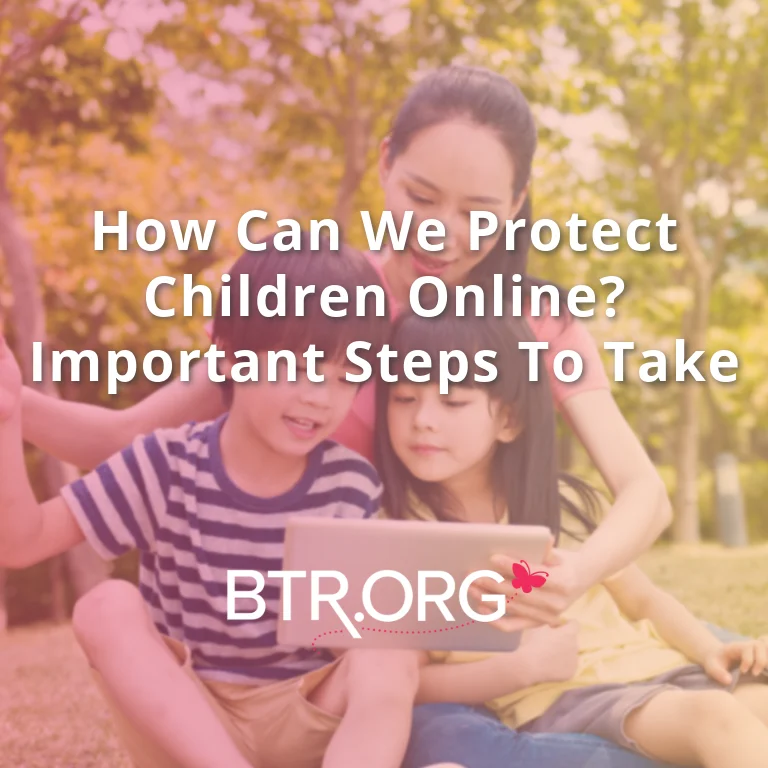
Transcript: How Can We Protect Children Online?
Anne: I have Melea Stevens on today’s episode. She is a board member of the National Center on Exploitation.
Melea, welcome.
Melea: Thank you. It’s a pleasure to be with you.
Anne: Most people don’t realize that hardcore explicit content is illegal because they are so normalized.
Melea: Yes, Anne, you’re absolutely right. Society normalizes harmful content. Most people don’t realize that these easily accessible acts are actually illegal. At least the extreme forms, which are often what it entails today. The only legal aspects are very limited and defined differently.
Up until the early nineties, our Department of Justice was enforcing federal obscenity laws that applied to these situations. But we’ve grown very lax, if not completely stopped, enforcing our existing laws. So at this point, it’s rampant. Those engaging in these acts know they can do whatever they want because we’re not enforcing existing laws. Because of this, it’s becoming increasingly difficult to protect children online.
Anne: All forms of online exploitation are abusive. They hurt people. Whether you’re participating in it, actively engaging in it, or in a relationship with someone actively engaging in it, it’s going to hurt everyone involved.
Alabama’s Resolution To Protect Children Online
Anne: You wrote an article entitled, Alabama’s Resolution to Declare P__ography a Public Health Crisis is Urgently Needed. Did that pass?
Melea: Yes, it did.
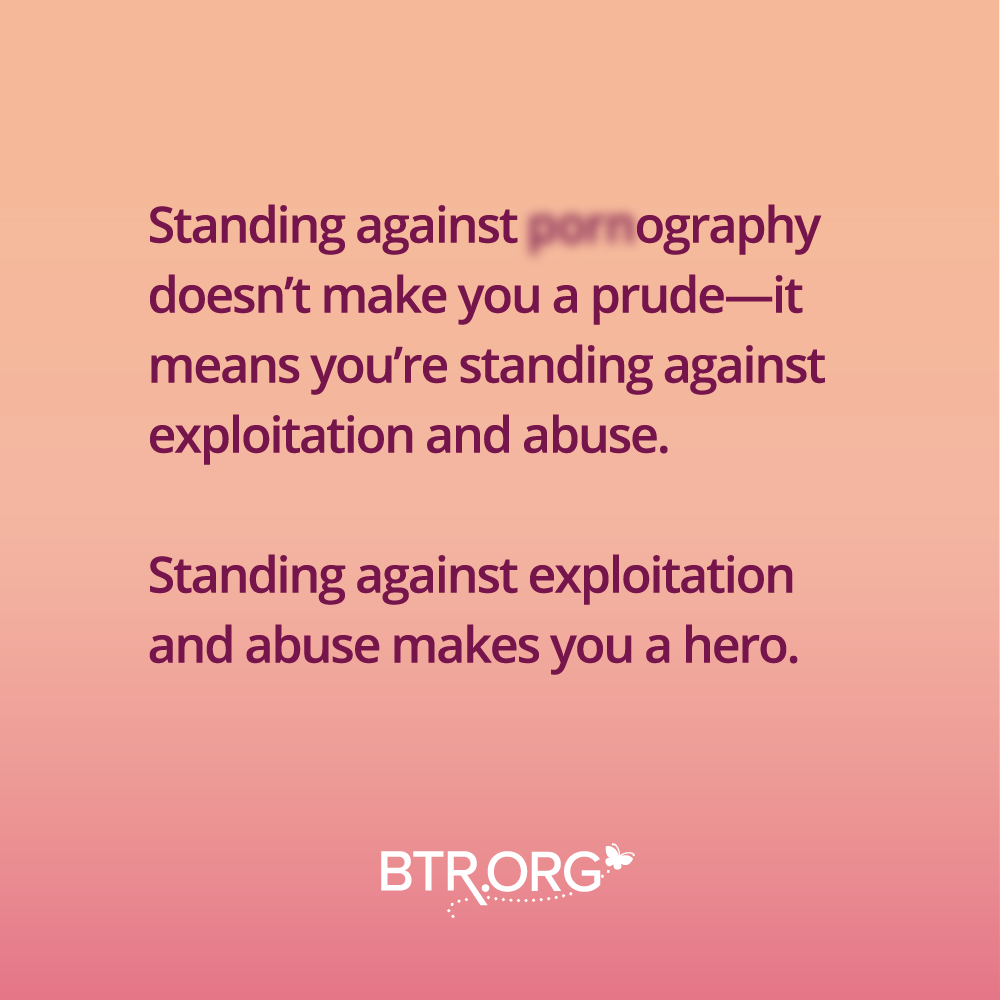
Anne: Awesome. In that article, you mentioned the heartbreaking experiences you’ve had working with children impacted by online explicit content as young as six to 11 years old. Would you mind telling our listeners a bit about your experiences?
Melea: Yeah, so over the course of 20 years, I’ve seen the devastating effects of this content on adults, individual lives, marriages, and as we may touch on later, these types of exploitation. It’s an epidemic. As I’ve interacted with countless individuals and couples struggling due to this content, I’ve witnessed the deep pain and destruction it causes. I don’t specialize in kids. But protecting children online should be a top priority for everyone.
The Case Of A Young Girl’s Exposure
Melea: A little girl who was six years old was first impacted by harmful online content at the neighbor’s house. It’s so frustrating that we can’t protect children online all the time.
After one exposure, she and the little girl down the street started acting out. The families decided, if we just don’t talk about it, maybe they’ll forget about it and it’ll go away. But it didn’t go away. She became more and more aggressive.
It escalated to the point where she performed different behaviors she had witnessed. Very violent behaviors on her baby sibling barely two years old. This alarmed her parents. They continued to think, okay, maybe if we just remove her from these situations and try to monitor her, it’ll stop.
But she got in trouble at school because she stole phones from teachers’ purses so she could access harmful material. This little girl’s feet don’t hit the floor.
Her affect is very flat—almost eerily flat. And her parents told me, “She doesn’t bond the same, she’s not the same child. She seems cold, withdrawn, and isolated. And we don’t know what to do.”
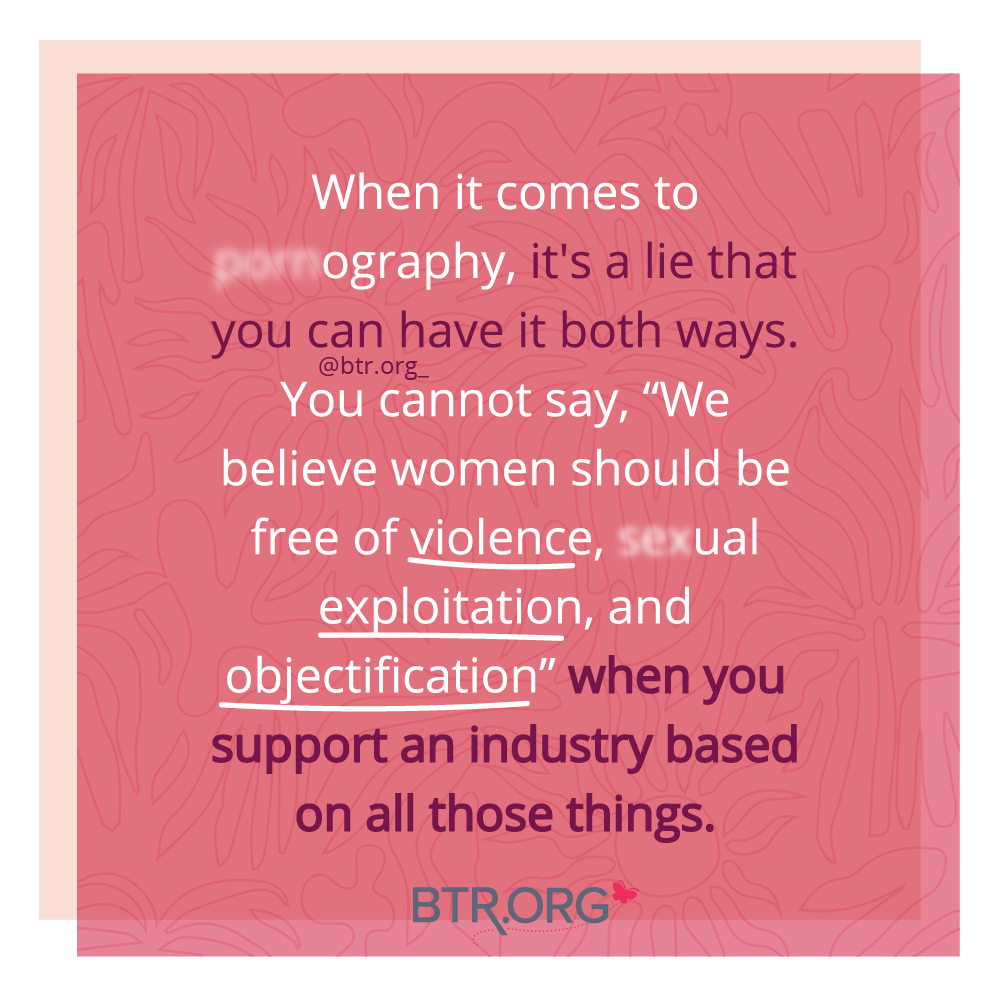
When I talked to the little girl, I carefully asked her questions because I wasn’t sure how she would react. Then, without hesitation, she said, “I don’t see why my parents are bringing me here.”
“I don’t see what’s wrong with it. You should be able to do whatever you want, whenever you want.”
It’s so alarming what happens when we fail to protect children online.
How Can We Protect Children Online? A Young Boy’s Struggle
Melea: There was an 11-year-old boy who got into trouble because of what he was doing at night. His parents didn’t know when he first saw explicit online content, but he figured out that the neighbor had magazines about it. So, at night, he would sneak out of his house and look in the neighbor’s mailbox. Eventually, it got worse. He started breaking into the neighbor’s house because he couldn’t find what he wanted at home.
The neighbor didn’t have kids, just adults, but the boy would go inside and use their computer to look for the content he wanted. This happened more than once. The neighbors got frustrated, so they started calling the boy’s parents. They would say, “Your son is on our computer again. Come get him, please!”
So these things really opened my eyes to the fact that this material truly hijacks the brain of any user, but especially a child. We need to do everything we can to protect children from online abuse. And it provides miseducation and sets them on a trajectory of life that is extremely problematic. And it was heartbreaking.
Anne: Explicit content is abusive. It’s always going to be an abuse issue. And when it comes to children, they’re not abusers, but are being abused by the online material.
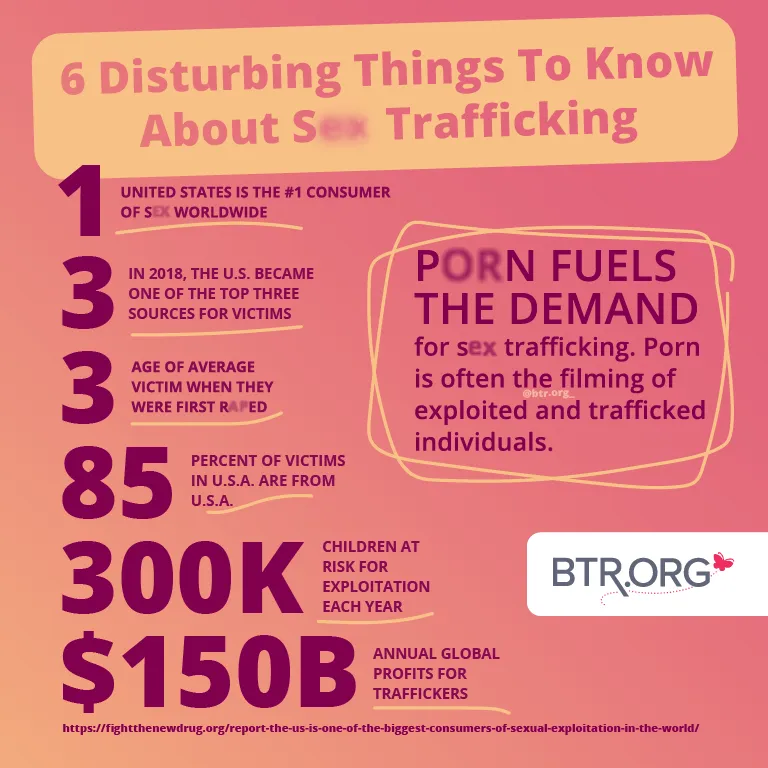
Melea: Showing a child anything about pornography hurts them emotionally. Their brains aren’t ready to understand those images or figure out what they mean. This confuses them and takes over their thoughts and feelings. As a result, their brain and body react in ways they can’t control. To deal with the trauma, they may feel forced to act out. This is why it’s so important to protect children online.
Recognizing Red Flags In Children
So when you have “child on child” harmful behavior, it’s a trauma response to what they’ve been exposed to.
Anne: So speaking of these children, you pointed out that parents noticed changes in their children. What red flags should parents know to look for?
Melea: Things that they might notice with children exposed to explicit content may become more isolated, withdrawn, or depressed. They may become sullen, and they may have a bad attitude towards other friends, playmates, especially people of opposite gender.
They may become more aggressive. You may see acting out that, you know, is age-inappropriate, or peeping. If you look at their browser history, if they’re on the internet and have been erasing the browser history. Or if you see them withdrawing to the bathroom for a long time, locking doors for extended periods, and taking devices with them. Those are just things that might raise a flag.
Anne: I think that affect you talked about with that poor young victim where she wasn’t very emotional, right? That’s what you’re talking about when you say a flat affect is also a red flag.
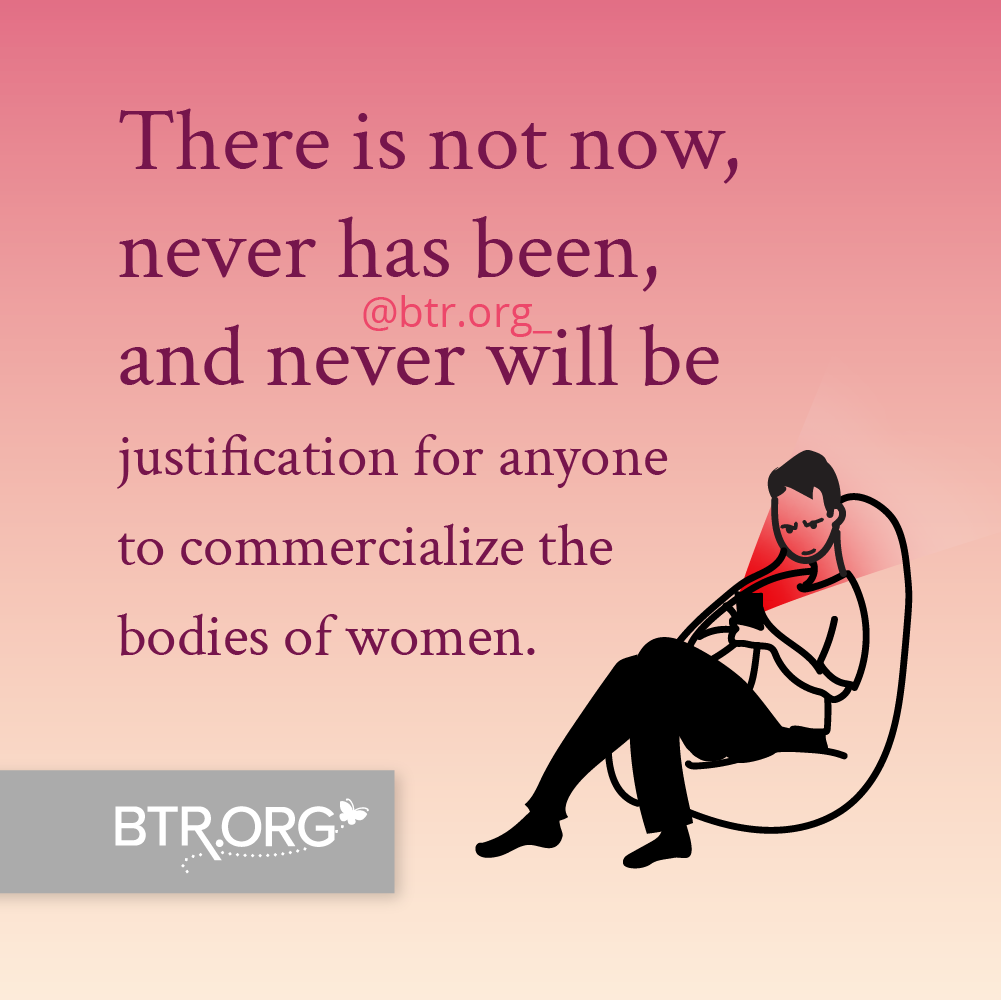
Melea: From my understanding, the exposure to explicit content happened at the neighbor’s house. The little girl down the street, her father was a consumer. There were no filters on any devices, and it was readily available at the home. The father confessed that, and the friend was already acting out due to explicit content.
Anne: Because that statement, “I should do what I want to whoever I want”, is a pattern that we see. People who act irresponsibly in dangerous ways say things like that.
Protect Children Online From Exploitation
Melea: Absolutely. Explicit content sends the message that doing what you want to people is a right. It’s such a degrading, violent, racist that it wears down any sense of right and wrong, any sense of boundaries.
Anne: Yeah, you can add misogynist to that list, of course.
Melea: Yeah, a hundred percent.
Anne: Explicit content is documentation of exploitation. It’s filmed documentation of abuse and exploitation. Tell me about your experience with victims of exploitation. What has that taught you about the dangers of explicit content?
Melea: Around the same time I saw these children, I started meeting survivors of exploitation for the first time. Two of the survivors told me how someone forced them to make harmful content. One of them was a young boy. The people who made them create this content tried to make it look like they were happy doing it. This experience shocked me and helped me understand how people create and demand this kind of harmful content. It is so important to protect children online from exploitation and viewing others exploitation.
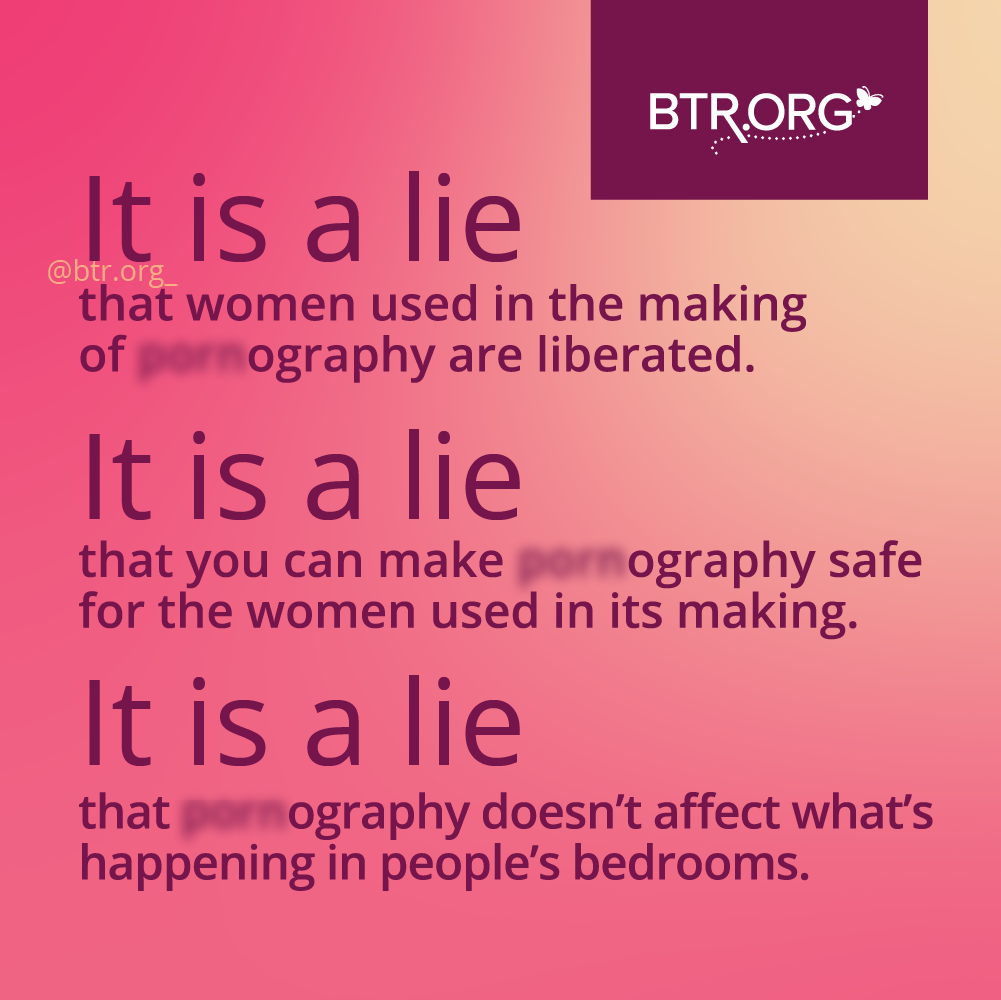
Right now, there’s a lot of news about websites like this. These websites are known for sharing content about cheating, and they make money in harmful ways. They allow terrible and violent content that clearly hurts people. And they profit from it. It’s upsetting to think about. Every year, we have a big meeting at the National Center on Exploitation.
Protecting Children Online: The Hidden Impact of Harmful Content
Melea: A few years ago, one man admitted cheating on his partner and hurting many people. Then, he explained how he tricked and pressured others into situations they didn’t want. For years, he told himself it wasn’t a big deal. But finally, he realized his actions caused pain and ruined the lives of those around him.
He admitted that he hurt his partners on purpose by wearing them down emotionally. He made them feel like they caused the problems. None of the people he hurt came back to thank him or say he taught them lessons. Instead, many of them dealt with deep emotional pain for a long time. Relationships fell apart and never got fixed. Again and again, we hear stories like this. People who use explicit content cause emotional betrayal, and their behavior harms people.
His Emotionally Abusive Behaviors
Anne: If you want to stop the pain caused by cheating, the first step is to see how much harm it does. Cheating hurts more than one person—it affects everyone involved in big ways. It also leaves lasting scars. Some people might say cheating isn’t a big deal or try to make excuses for it, but they ignore how much it hurts others. That’s why it’s so important to take action right away. You can get help, from the best betrayal trauma resources, to break this harmful cycle. With help, you can also find and fix the deeper problems that cause this behavior.
Melea: Exactly! Some people say, “Cheating is a choice, and they have the right to make their own decisions.” But even in relationships that claim to be open, like polyamory or open marriages, it causes problems. Often, someone realizes later that they were hurt by lies or trickery paraded as honesty or freedom. Words like “ethical non-monogamy” sometimes hide cheating and help people dodge responsibility for the pain they caused.
Online Explicit Content Results In Deception
Anne: I often say explicit is the documentation of deception. It’s real betrayal, not just in private, but it effects families and communities. And not only is this emotional harm documented, but people actively justify it.
Melea: It’s like watching emotional harm happen right in front of you. I remember one story where a person shared how their friends cheered them on for their actions.
Anne: And people often assume that explicit content is harmless or only affects the immediate parties involved. They think it’s just a personal choice or that the other person consented to it fully. But that’s not true at all—it’s a dangerous misconception.
Melea: Yes, over the past 25 years, studies have shown that people who hurt others in their relationships often cheat. The types of habits that lead to a lot of harm, that’s why we should protect children online.
The Brain’s Response To Explicit Content
There was no remorse, even after being in prison for an extended period. And that’s disturbing. Studies demonstrate that continual engagement in explicit content damages the pleasure or reward pathways of the brain, similar to the effects of illicit drugs like heroin or cocaine. It actually causes the gray matter to atrophy and shrink. Which is why it’s so important to protect children from ever being exposed online.
Experts explain that the frontal lobe of your brain controls things like kindness, caring for others, and empathy. But when someone keeps making harmful choices, like being unfaithful, this part of the brain can shrink. As it shrinks, empathy fades. This means people start seeing others as things to use, not as people to care about. Over time, these bad choices actually change how the brain works. This creates unhealthy habits, breaks trust, and makes it harder to have real, loving relationships.
Anne: I often say, if you’re an alcoholic, you abuse alcohol. If you’re a drug addict, you abuse drugs. If you’re engaging in watching explicit content, you harm relationships and people. It’s a destructive cycle.
Melea: Absolutely.
Anne: And it’s an issue that can’t be ignored.
Melea: Explicit content affects not just the individuals directly involved, but often their families, too. It’s something that many don’t fully understand, especially when it escalates quickly into patterns of deceit and betrayal. For some, this behavior can spiral into obsessive thoughts and damaging actions, consuming their time, energy, and emotional well-being.
Protecting Children From A Cycle of Harm
Anne: And on the other side of this, for their family members, the effects are profound. Children experience neglect and a lack of empathy from the parent consumed by pornography. For loved ones, this often feels like emotional abandonment or abuse. The addict is caught in their cycle, and their family members are trapped in the ripple effects of that cycle.
Melea: Exactly. Often, when couples come in, the husband has been cheating for a long time. The wife feels frazzled, cries a lot, and doesn’t know what to do next. When she finally says, “I can’t do this anymore,” it usually means she has been carrying all the emotional weight in the relationship. Her husband focuses more on his cheating than on her, so she feels neglected and abandoned. As a result, she keeps thinking she’s not good enough, not pretty enough, or not wanted.
She faces constant psychological, emotional, and verbal abuse because of the betrayal and distance in her marriage. Meanwhile, her husband ignores how much his behavior hurts her because he believes it is normal. At the same time, the children feel the impact for years. Many kids who grow up in families affected by explicit content struggle as they get older. They often deal with low self-esteem and carry harmful lessons they learned from their parents’ actions.
A Public Health Crisis, How Can We Protect Children Online?
Anne: And that’s what makes this a public health crisis. Speaking of that, what do you hope can be achieved through your state’s formal recognition of explicit content as a public health concern?
Melea: I want everyone to understand how much harm explicit content causes. It hurts people, breaks relationships, damages families, and affects our whole society. In Alabama, we have already made progress. We are raising awareness and building momentum for change. Next, I want to bring these efforts into schools. Kids should learn about explicit content alongside lessons on preventing child abuse and trafficking. Teaching this early can make a big difference. Protecting children online starts with education!
We need to enforce laws better to protect vulnerable people. When we protect children online we can help individuals and families heal. This can stop harm before it gets worse. Plus, we need to raise awareness and work together to fight against all kinds of relational harm. Explicit content often leads to bigger problems, so stopping it early can make a big difference. There’s a lot we can do, and it all starts with taking action.
Anne: Many of our listeners are women who have experienced this type of harm in their homes. Their husbands, or ex-husbands, have engaged in this behavior, leaving them to deal with the emotional fallout. What would you encourage them to do if they want to advocate for change in their states or become involved on a legislative or community level?
Melea: I’d encourage them to use their experiences to drive change. Whether it’s speaking out, supporting awareness campaigns, or advocating for better resources to protect children online, every effort matters. Healing is possible, and so is creating a healthier, more compassionate future for families.
The Importance Of Protecting Our Own Children and Families First
Anne: Before you answer this, I want to share something important with the women listening. First, make sure your home is a safe and peaceful place for you. Many women feel scared and unsure in their own homes because of emotional or psychological abuse. This makes them feel stuck and powerless.
They might also worry about how they can make a living. But remember, you are not alone, and there are steps you can take to find safety and support.Instead of focusing only on stopping explicit content outside the home, start by making sure you and your family are safe inside your home. Your first priority is to create a space where everyone feels emotionally, mentally, and physically secure. When your home is safe, you protect yourself and your children from this kind of harm. This is the most important step, and it makes a big difference for everyone in your family. So, begin at home, and take care of what you can control first.
Protect Children Online By Focusing On Safety
Melea: Amen.
Anne: Do that first. And then if you’re like, I want to write some legislation like Melea, what would you say if they’re ready for advocacy?
Melea: I totally agree that stabilizing is the first and most important step. After that, turning their pain into action can be really powerful. They can use their voice to make a big difference and become agents of change. It hurts people, and there are many ways they can help fight against it. For example, they can work to get their state to declare explicit materials a public health crisis. So far, 15 states have already done this. It’s a great way to take action and create change!
Protect Children Online: Community Involvement & Awareness
Melea: But if their state hasn’t passed it yet, and they’d like to promote it, I would urge them to contact the National Center on Exploitation to the portions that talk about the public health crisis related to harmful content. And to familiarize themselves with the facts. It takes a good bit of consistent energy and focus to work with legislators. It is worth it, because it can be deeply harmful, and addressing it is an important process.
We worked with many local leaders, including anti-trafficking groups. We also worked with people from both political parties because this is an issue everyone cares about. The Senate agreed and voted to pass it, with everyone saying yes. I learned so much during this process. There are so many ways to help! For example, you can raise awareness at your school, church, or even in your neighborhood. Plus, there’s a super easy presentation you can share right at home. Let’s all work together to make a difference!
If they want to raise awareness among other moms and dads, the website defendyoungminds.org could be used to spread awareness and start dialogue. Churches and schools desperately need our voices to protect children online.
Anne: NCOSE has some amazing initiatives. I spoke at the summit. I’ve been to the summit twice and had a good experience there. If you join their newsletter, that’s a good place to start.
Melea: Yes. I would encourage your listeners to consider joining our summit this summer.
Anne: You mentioned P__nhub, which is our arch nemesis.
Support Initiative to Shut Down P__nhub
Anne: There is a current initiative to shut down P__nhub. Can you talk about that?
Melea: Yes, there’s an initiative by Layla Micklewaite with Exodus Cry. She’s their abolition strategist. It’s raising awareness about trafficking within industries that fuel explicit content, and they’re gaining tremendous traction. They’ve had over a million signatures, and we would love your audience to join us in this effort to stop harming children online.
Anne: Wouldn’t that be a miracle?
Melea: Yes.
Why Explicit Content Contributes To Infidelity
Anne: Many women in our community pray for a miracle. They hope their husbands can change, almost like being brought back to life, like Lazarus. These men seem spiritually lost. They show no emotion, no compassion, and no empathy. Their actions often harm their families and put everyone at risk. Because of this, so many women keep praying for a miracle. But no one really knows what those miracles will look like.
I think shutting down P__nhub would be a big answer to the prayers of so many women. These women pray for their homes, their husbands, and their families. But I also want them to see that they are part of something bigger. Their prayers are making a difference, and together, they are helping. For many of the victims I know, things got really hard. Their marriages ended in divorce, and they still face emotional and mental pain. A lot of this pain comes from the problems caused by cheating.
There’s no simple or immediate end in sight for their recovery process. But if you can’t see change in your own life, sometimes it helps to take a step back and observe the victories happening. And know that you haven’t been forgotten—you can be part of a larger movement.
Hopes For DOJ Enforcement To Protect Children Online
Anne: Sometimes that gives a victim hope that there’s a little light at the end of the tunnel.
Melea: It’s exciting and gives me so much hope. For example, when I go to events like the summit, I get to meet other people who care about the same things I do. This makes me feel stronger and more motivated. Also, shutting down P__nhub feels like a dream come true. But even more, I hope the Department of Justice will start enforcing the federal obscenity laws we already have. If they do, it would be a big step forward in protecting children online.
If we fully enforced the laws like we used to, it wouldn’t be on the internet. It wouldn’t show up on cable, satellite, or in the mail because those things are illegal. Instead, it would go back to being in a restricted category, like softcore explicit material. People would only find it in adult bookstores, which are hard to get to. To make this happen, we need the Attorney General to focus on enforcing these laws and take action.
Helping Victims Get Abuse Education
So that is one of my consistent prayers, is that we’ll have someone who’s fearless and will reactivate that section lying dormant.
Anne: Absolutely, that’s another good thing to pray for. Let’s pray for everyone to protect children online. As if you didn’t have enough things to pray for listeners.
Melea: You have to. I think God understands that for sure. Pray without ceasing some more. God hears you. God is moving.
Anne: Malea, thank you so much for being on today’s episode. We appreciate your time.
Melea: It’s my pleasure and honor. Thank you, Anne.




I am suing my Ex for his all his lies about infidelity online – it was fraud. I’m looking for a lawyer to take my case.
Cool! Let us know if you can find someone to take the case.
Please keep us posted. I found out a year ago when I discovered my ex cheated many times along with continual and compulsive use and M. We tried infidelity counseling, but they didn’t identify any of the abuse I was neglected in the bedroom for 10 of the 16 yrs we were together. not only to me but his children’s mother too (his 1st wife).
What about the women/girls in the online content that leads to infidelity? Most have been coerced with money, some have been trafficked. All of them are someone’s daughter. Men watching are so detached, thinking that it’s okay because they’re not touching them, not realizing they’re paying to watch a woman be coerced and abused. This can be marital coercion too.